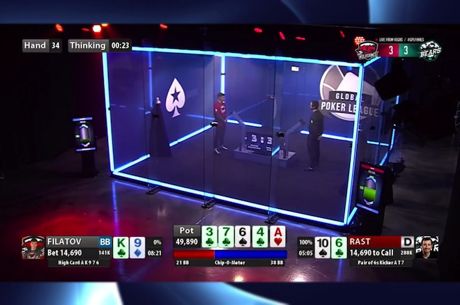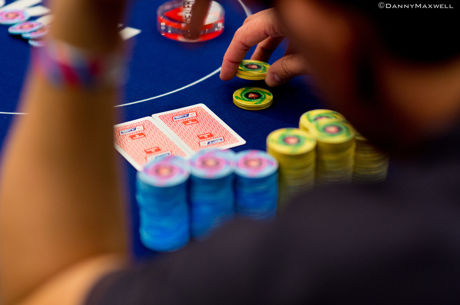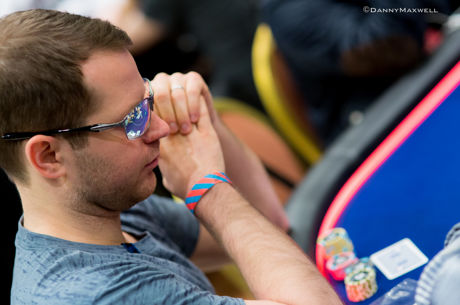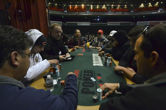Hand Review: Matt Affleck Leads the Flop with a Set
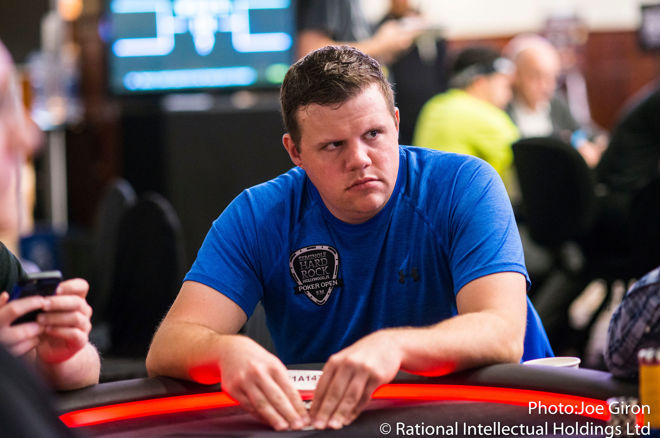
Covering live poker tournaments for a living affords me the opportunity to see countless thousands of hands played out, many of which offer interesting and potentially valuable insights into how players �� both amateurs and professionals �� play the game. In this ongoing series, I'll highlight hands I've seen at the tournaments I've covered and see if we can glean anything useful from them.
The Scene
For this week's hand, we shift our focus away from the author's ill-fated attempts to make something happen in Hammond and get back to a hand played by actual professionals. This one matched British pro David Vamplew with American pro Matt Affleck at the recently-played PokerStars Festival New Jersey Main Event.
Affleck and Vamplew were two of the most accomplished players left among the Day 3 field, and each brought very healthy stacks into play. Both players were playing their usual brands of aggressive, solid poker when they went to war at the 3,000/6,000/1,000 level.
The Action
Affleck had around 350,000 to start the hand, and he opened the action from early position with a raise to 14,000. Vamplew, who started with about 220,000, then made it about 35,000 to go from the next seat over. It folded back to Affleck who called, and the pair saw the flop come 9?A?10?.
Affleck thought a bit and came out betting, pushing forward 40,000. Vamplew called the bet, and the turn brought the 7?. Affleck shoved all in to put Vamplew at risk for his remaining 140,000 or so.
Vamplew looked ready to snap-call, but thought a while first. Eventually, Vamplew did shrug and put his chips in, only to see his A?J? was in need of help against Affleck's set of nines with 9?9?.
The 3? river sent the pot Affleck's way and eliminated Vamplew in 16th place.
Concept and Analysis
This hand starts out normally enough, with Affleck opening a good hand and Vamplew three-betting another solid hand against what he knows is an aggressive opponent capable of opening with some weaker holdings.
The players are on the shallower side with around 35 big blinds effective, but there are implied odds of around 10-to-1 for Affleck to call the three-bet, and nines could be the best hand. Such a hand is tricky to play out of position against good players, but probably just too strong to fold here.

When the 9?A?10? flop hits, Affleck makes the interesting and definitely non-standard decision to come out betting for around half-pot. The standard play is to check to your opponent who has the betting lead, especially when the flop comes ace-high, so you can assume it helped him a good percentage of the time.
But Affleck wants to get stacks in here. If he checks and calls a bet and Vamplew has a hand like kings or king-queen, he's probably going to check back the turn and get to realize any equity he has by seeing all five cards in position. If Vamplew has top pair, he might do the same thing for pot control, and Affleck might have to do something like overbet the river to try to get stacks in.
Plus, look at that flop. If it were something like 9x2x2x, checking would be pretty obvious because you don't have much to balance your leading range. But with 9?A?10?, Affleck could plausibly be balanced with strong draws and even two-pair hands that he may have peeled with preflop and is now looking to deny Vamplew the chance at a free card.
Vamplew, of course, calls with top pair, and then picks up a gutshot on the turn. At that point, Affleck decides to just put him all in. Leading the flop gave him control of the betting and allows him to jam the turn on a board with three to a straight. If the river is a jack, eight, or a six, there would be a four-straight on board that could cost Affleck either the pot or a chance to get more value.
By leading the flop, Affleck was able to get stacks in against the hand he was hoping to be up against. At the same time, he did it in a spot that made sense for some weaker hands, so Vamplew was stuck in a tough spot and ended up calling off his tournament with slim equity.

